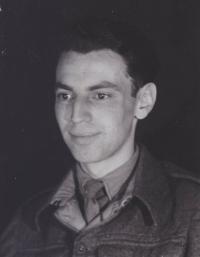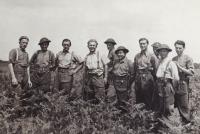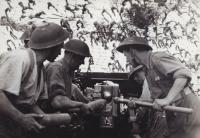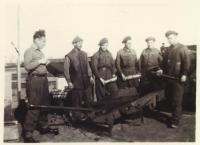The biggest horror I saw during the whole war was six weeks after the invasion when we were landing on the invasion beach

Download image
Leo Kohn was born in a Jewish middle-class family in Prague. It was his mother that made the decision for Leo to go to Britain. Mr. Kohn was the oldest of the children saved by Nicolas Winton. In May 1939 he boarded the train to Britain. He returned to Prague exactly six years later, on May 31, 1945. In Britain he went to school. By the age of 18 he enlisted in the army. He was trained as artillery crew member. In 1944-45 he fought at Dunkerque. His brother perished in Theresienstadt, his parents were murdered in Auschwitz. Except for his aunt who saw the end of war alive in Theresienstadt, none of his closest relatives survived the war. After the war, Mr. Kohn worked 31 years as a technical employee of Prague’s Tatra works, without the possibility of a career lift for political reasons.



